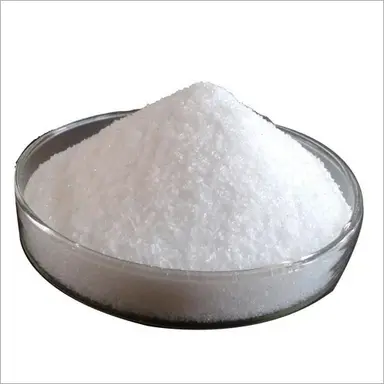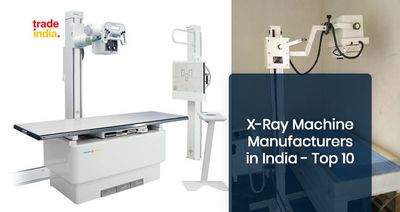![Everything You Need to Know About Polyelectrolyte [Top Manufacturers]](https://www.tradeindia.com/blog/content/images/2023/09/Everything-You-Need-to-Know-About-Polyelectrolyte--Top-Manufacturers-.jpg)
Introduction
In India, polyelectrolytes, being polymers consisting of ionizable groups, have become a vital element across various sectors and areas of application. Their unique electrostatic qualities allow them to be used in various fields, including water treatment and cosmetics. Focusing on polyelectrolytes, this blog investigates their applications and highlights Indian suppliers and manufacturers. From scientific studies to reliable sources, this blog caters to all your needs related to polyelectrolytes.
Understanding Polyelectrolytes
Polymer chains within macromolecules called polyelectrolytes move electrons, either positively or negatively. With their ability to control ions in solution, polyelectrolytes stand out as highly efficient. Unlocking the full potential of polyelectrolytes requires an insight into their dynamic electronic behavior, spanning applications such as impressive water cleaning to exceptional culinary innovations.
The Versatile Applications of Polyelectrolytes
After understanding the basics of polyelectrolytes, lets explore their versatile applications in various important industries:
Water Treatment: Polyelectrolytes play an essential part in making water cleanup simpler.
Drug delivery systems rely on the usage of polyelectrolytes to regulate medicine releases. Utilizing these particles, medications can be encapsulated and released more extensively or purposefully over time.
Throughout the papermaking process, they enhance retention, drainage, and paper strength.
Textile Industry: Polyelectrolytes help stabilize dyes, controlling textile colour rheology.
Food & Cosmetics: Multifaceted polyelectrolytes boost product quality through their roles as stabilizers, thickeners, and gelators.
They play a critical role in treating wastewater, creating drilling muds, and enhancing oil recovery within the oil and gas industry.
Biomedical Research: Biomedical research relies heavily on polyelectrolytes, which are used in areas including biosensors, controlled drug release systems, and tissue engineering.
Top Polyelectrolyte Manufacturers
High-quality polyelectrolytes are produced by plenty of companies. Although finding the ideal choice may take some effort, it is definitely achievable. Gladly, we have curated a list of top polyelectrolyte manufacturers, known for their expertise and reliability:
Chemtex Speciality Ltd.
Since the year 1970, Chemtex Specialty Ltd. has been a reputable producer and provider of polyelectrolytes. Being in operation for so many decades, has helped the company gain deep insights of the industry. Over the years, the company has worked diligently to enhance its product range. Water and wastewater treatment applications are where the products offered by the company have gained significant traction.
Varun Enterprises
Set up in 1998, Varun Enterprises aimed to offer top-tier chemicals to the industry. Achieving its goals enabled the company to grow into a reliable producer of numerous chemical items including polyelectrolytes. The chemicals offered by Varun Enterprises are all ensured to be of finest quality, prior to being delivered to customers.
Acuro Organics Limited
Acuro Organics Limited is an Indian company that specialises in the production and sale of speciality chemicals, including polyelectrolytes. The company ensures that its polyelectrolyte price remains reasonable so that customers can afford them easily.
Trublu Technologies Pvt. Ltd.
Based in the city of Bengaluru, Karnataka, Trublu Technologies Pvt. Ltd., is among the leading polyelectrolyte manufacturers and suppliers in India. Since the year 2016, the company has been providing the most effective chemicals to customers at genuine prices.
Raybon Chemicals and Allied Products
In 2003, Raybon Chemicals and Allied Products was founded to revolutionize the chemical industry with the most effective products. With an experience of more than two decades, the company has backed a leading position in the chemical industry. By focusing on delivering only the finest grade of chemicals, the company has gained the trust of so many key customers.
Universal Water Chemicals (P) Ltd.
It has always been the goal of Universal Water Chemicals (P) Ltd., to provide industries with the most reliable range of polyelectrolytes. The company has significantly expanded since 2006 and is now among the leading polyelectrolyte manufacturers in India.
Angel Chemicals Private Limited
Angel Chemicals Private Limited is a company based out of Vadodra, Gujarat, India, and from here, it has been delivering the best-in-class polyelectrolytes and other speciality chemicals to multiple industries.
Drashti Chemicals
Being one of the top polyelectrolyte manufacturers, Drashti Chemicals has made a great name for itself in the chemical industry. The company has its facility in the city of Vadodara, Gujarat, India.
Mithila Industrial Company
Based in the capital city, Delhi, India, Mithila Industrial Company has been serving the finest quality cationic polyelectrolyte powder and many other products in the market. Since 2017, the company has been among the most prominent polyelectrolyte suppliers in India.
Meru Chem Pvt. Ltd.
Meru Chem Pvt. Ltd., an esteemed company that was established in 1996, manufactures high-quality chemicals, including polyelectrolytes and water treatment solutions utilized in several applications. The company has successfully backed a leadership position in the chemical industry by consistently providing the best solutions.
Conclusion
In conclusion, polyelectrolytes are versatile materials with a wide range of uses, from water treatment to cosmetics. Because of their capacity to interact with and modify charged particles in solutions, they are particularly beneficial in a variety of fields. The concept of polyelectrolytes, their applications, and some of the most renowned manufacturers and suppliers in India have all been addressed in this blog. The companies that have been featured play an essential role in providing legitimate and high-quality polyelectrolytes to meet the diverse demands of various industries.
In essence, polyelectrolytes continue to be essential in enhancing industrial processes, improving water quality, and fostering a more sustainable future.Whether in water treatment, paper manufacturing, or pharmaceuticals, the unique features of polyelectrolytes continue to have a substantial influence on a variety of major sectors.
FAQs: Polyelectrolytes
Q. What are polyelectrolytes and what is their chemical composition?
Ans. Polyelectrolytes are a type of molecules known as macromolecules, which have charged groups called ionic groups present, along their polymer chains. These ionic groups can be positively charged (known as cationic) or negatively charged (known as anionic). Depending on their charge, ionic groups go by either the name cationic or anionic. Scientific and industrial applications greatly rely on polyelectrolytes, especially in chemistry, biology, and materials science.
Despite their varied chemical structure, polyelectrolytes have one thing in common: they all hold charged groups. Lets take a look at some examples of common types of polyelectrolytes and their respective chemical compositions:
1. Polyelectrolytes with Anionic Groups:
Polyacrylic Acid (PAA): With carboxyl (-COOH) groups integrated throughout its polymer chain, this polyelectrolyte is synthetic. PAA serves as an example of a negatively charged polyelectrolyte.
Polysulfonates: Sodium polystyrene sulfonate is one polyelectrolyte that contains sulfonate groups (-SO3-) along its polymer chain and carries a negative charge.
2. Polyelectrolytes with Cationic Groups:
Polyethyleneimine (PEI); PEI is also a synthetic polyelectrolyte that comprises amino groups (-NH2) along its polymer chain. To produce positive charges, these amino groups can be protonated.
Chitosan: Derived from chitin, chitosan is a polyelectrolyte that contains amino groups capable of acquiring positive charges under acidic conditions.
3. Ampholytic Polyelectrolytes:
In certain polyelectrolytes, the same polymer chain contains both cationic and anionic groups, and they are called Ampholytic polyelectrolytes. Depending on the particular monomers utilised in their synthesis, they can have a broad range of chemical compositions.
Q. What are the common uses and applications of polyelectrolytes?
Ans. Because of their extraordinary affinity towards charged molecules in liquid media, polyelectrolytes serve multiple purposes in several sectors. Below mentioned are the main uses and applications of polyelectrolytes:
Water Treatment: Polyelectrolytes act as coagulants and flocculants in water and wastewater purification processes. Through this process, the solid particles become more concentrated and easier to remove, which helps cleanse the water.
Textile Industry: Dye-fixing agents and additives made up of polyelectrolytes change the texture of fabric dyes.
Food & Beverage: With their ability to act as stabilisers, thickeners, and gelling agents, polyelectrolytes play important roles in food manufacturing. Improving the look and feel of meals, they can help with.
Paper & Pulp Industry: Polyelectrolytes play multiple roles in papermaking techniques – retention aid, drainage agent, and dry strength enhancer. This enhances paper quality and protecting the environment at the same time.
Q. How do polyelectrolytes function as flocculants or coagulants in water treatment?
Ans. Coagulant or flocculant depending on their charge and behavior, polyelectrolytes affect suspended particle dynamics in water. During coagulation, adding polyelectrolytes that carry opposite charges helps particle neutralization occur by collision, which leads to aggregate formation called flocs. After adding flocs having the same charge as the polyelectrolyte, links are created via the polyelectrolyte bridging these flocs so they aggregate more efficiently throughout the settling stage of the flocculation procedure. After treatment, the flocs can be isolated away from the purified water.
Q. What are the different types of polyelectrolytes available?
Ans. The types of polyelectrolytes available in the market, are as follows:
Synthetic Cationic Polyelectrolytes
Synthetic Anionic Polyelectrolytes
Natural Polyelectrolytes
Ampholytic Polyelectrolytes
Polyzwitterions
Hybrid Polyelectrolytes
Block Copolymers with Ionic Blocks
Biodegradable Polyelectrolytes
Q. What are the benefits of using polyelectrolytes in wastewater treatment?
Ans. Polyelectrolyte integration into wastewater management leads to numerous advantages like better water quality, decreased sludge amount, improved solid-liquid partitioning, and enhanced impurities removal efficiency.
EXPLORE MORE:






